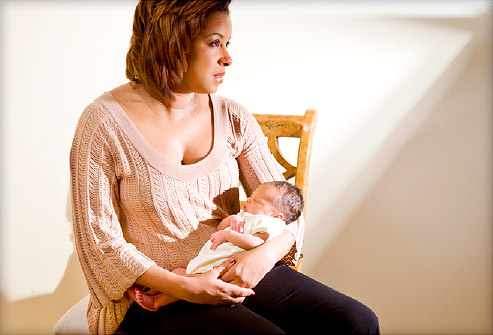-
Tips for becoming a good boxer - November 6, 2020
-
7 expert tips for making your hens night a memorable one - November 6, 2020
-
5 reasons to host your Christmas party on a cruise boat - November 6, 2020
-
What to do when you’re charged with a crime - November 6, 2020
-
Should you get one or multiple dogs? Here’s all you need to know - November 3, 2020
-
A Guide: How to Build Your Very Own Magic Mirror - February 14, 2019
-
Our Top Inspirational Baseball Stars - November 24, 2018
-
Five Tech Tools That Will Help You Turn Your Blog into a Business - November 24, 2018
-
How to Indulge on Vacation without Expanding Your Waist - November 9, 2018
-
5 Strategies for Businesses to Appeal to Today’s Increasingly Mobile-Crazed Customers - November 9, 2018
Panel Recommends That U.S. Adults Be Screened for Depression – Daily Dose
Perinatal depression – depression that occurs during pregnancy or in the first 12 months after delivery – is estimated to affect one in seven women.
Advertisement
The United States Preventive Service Task Force (USPSTF) has just released the draft of a new recommendation statement for screening adults for depression in a primary care setting.
This is a grade B(www.uspreventiveservicestaskforce.org) recommendation, meaning the USPSTF determined that “there is high certainty that the net benefit is moderate or there is moderate certainty that the net benefit is moderate to substantial”.
The panel states that the screening of depression could be done easily with the assistance of a Patient Health Questionnaire consisting of nine standard questions.
A previous USPSTF recommendation from 2009 called for selective screening based on professional judgment and patient preferences when depression care support was not available.
Feelings of intense sadness show up in many pregnant and postpartum women. They were not excluded from the 2009 recommendations, but task force members evidently believed that the special risks for depression in these subpopulations warranted a specific mention in the new statement.
Until August 24th, the task force has left the doors open for public commentary on their drafted recommendations.
The AAFP is reviewing the USPSTF’s draft recommendation and will update its own recommendation after the task force publishes its final recommendation statement.
Depression is one of the leading causes of disability in adults and is common in primary care patients.
Commenting on the proposal of the panel, President of American Psychiatric Association, Dr. Renee Binder said, ” “The majority of people are not depressed, but a few people are – especially in the postpartum period.
Another doctor not involved in the proposal also sounded off on the importance of screening women, as treating mothers diagnosed with depression could have a positive, and significant effect on their children. The report did note that gaps still exist in the research in screening older adults with depression.
Advertisement
“This serves as a advice to really screen all individuals inside the principal care situation, as well as expecting a baby and postpartum females”, said Bibbinsis thatDomingo, who’s also connected with the University of California, San Francisco. “Similarly, the USPSTF notes that policy and coverage decisions involve considerations in addition to the evidence of clinical benefits and harms”.





























